|
Five days ago we said goodbye to Greece, goodbye to Lesbos, goodbye to the camp, and goodbye to the faces that we had familiarized ourselves with over the last week. Undoubtedly, the latter was the most difficult to say goodbye to. Face of men, women, and children who are living a life we can never imagine. For myself, goodbyes are typically never that difficult. I've rarely said goodbye to someone who I knew I'd never see again. This goodbye was different. What do you tell to someone in that situation when you are saying goodbye? What do you tell to someone who you know you'll likely never see again? For the thousands of refugees living on Lesbos and the hundreds-of-thousands more around the world, goodbye is something they said to their homes long ago. Goodbye is sadly a conversation they're very familiar with. However, with each goodbye, as I learned over the week, comes a glimmer of hope for the future. Every one of those hundreds-of-thousands knows exactly where they want to be and exactly when they want to be there. The best I could do, when saying goodbye, was to express my hopes for their future. Hopes that they find what they're looking for. Hopes that their lives are blessed in the future. Hopes that maybe someday our paths will cross. Hopes that the world welcomes them with open arms in the same manner they welcomed us. Hopes that someday I'm lucky enough to help others in the ways they've helped me. Let me ask you a question: What wouldn't you do for your neighbors? Would you feed them? Would you clothe them? Would you house them if they lost their home? Would you tend to their health? I would hope the answer to these questions would all be the same. Now, think about this. Who are your neighbors? Are they just the people who live next to you? Are they the people in your community, town, village or city? Our world is now more interconnected than ever before. One could jump on the Internet and strike up a conversation with someone thousands of miles away within a matter of minutes. With this inter-connectivity comes cross-cultural exchange on a grand scale. Hopefully, with this cultural exchange also comes cross-cultural awareness, understanding, tolerance, and respect. The same type of thing occurs when you care directly for your neighbors in the ways expressed above. I would argue that the list of people who aren't your neighbor is smaller than the list of things you wouldn't do for your neighbor. Above I asked you who your neighbors are. Look at the map above depicting migration to the United States (click the picture to see the animation). Who isn't your neighbor? Is it possible that someone you have never met and may never meet in your life could be your neighbor? If you believe the world is more interconnected than ever before, the answer to that question is yes, they are your neighbor. All those things you said you'd do for those living directly near you, I urge you to do for all of mankind. Last night, someone asked me if "it has all set in yet." I'll admit, I wasn't prepared for that question and wasn't exactly sure how to answer it. Has it all set in? I don't think it will ever fully set in. Once you experience something like that, how do you go back? How do you ever look at life the same way? The answer is, you don't. For that, I'm thankful, because I don't want to.
-Ryan
1 Comment
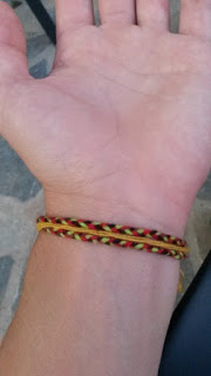 If you've ever visited another country, you are sure to understand what I mean when I say that people from other countries are so hospitable. From greeting you with "Hello, my friend!" to inviting you in for tea, hospitality is something that permeates cultures around the world. Our experiences in the Moria Camp reflect that perfectly. I told you about the first day, when Johannes and Imanuel, our Eritrean friends, invited us inside their tent structure for some much needed respite from the hot sun. When we wanted to help and serve them, it was they who were doing the serving. Many of our lives have been touched by individuals in the camp who we will never forget. I have been working in Level 2, which is a family unit of about 100 refugees from Afghanistan. All of them are Afghan and have fled the terrible situation there. I have spent two days there and some of my experiences have changed my life. Today, there was a sweet little girl named Rhiana, about 5 years old, who I was talking with while I was on gate duty (this part of camp has a large gate to protect the families). She has lived in the camp for 3 months now. She has a total of 8 brothers and sisters who are living there with their parents. She had a very pretty necklace that had been woven out of simple string. I told her that I thought it was very pretty and she smiled and ran off. No more than 15 minutes later, she was running back to me with my own woven bracelet, eager to wrap it around my wrist. "Green, red, and black, the colors of Afghanistan!" she declared as she grabbed my wrist and wrapped it tightly. I hope it never falls off. In many of the communities, some of the men have stepped up to take on leadership roles. These men work with Euro Relief and receive a large amount of responsibilities such as passing out meals to the families, guarding the staff shack, operating the gate, and resolving conflicts among the families. One of these men in Level 2 (the Afghani community) is named Shefi. Shefi is an 18 year old who has lived in the camp for 3 months. He dreams of moving to Germany to open a mechanic shop, a job that he performed back home before fleeing the wars. Shefi is an incredible person and has a huge heart. I met him yesterday, talked with him a good bit, and hit it off again today when we worked together. This afternoon, as I was guarding the gate, Shefi came running to find me. I was worried something was wrong. He grabbed my hand and repeated, "Ryan, come, Ryan, come!" I went with him into the staff cabin and was immediately brought to tears. On the floor, Shefi had laid out one of those gold foil emergency blankets that you'd find on a boat or a raft. You know those ones that are meant to keep you warm at night when it's cold? This type of thing. On the blanket he had laid out 7 meals. 7 of his own meals that were delivered to him that he was meant to eat over the next few days. With each meal, a fork, a piece of his bread, one of his juice boxes, one of his bottles of water, and two large communal bowls of traditional Afghan side dishes. "Come, sit my friend" he said as I held back emotion. Sitting there with me were 4 other volunteers with Euro Relief, Shefi himself, and Sha', a British girl who does a lot of translation work for the camp. Our wonderful host served us food, on the floor of a refugee camp, sitting on a gold foil blanket. While it doesn't seem like much, that dish of pasta, piece of bread, and orange juice box were a huge sacrifice for him. But he did it because we are guests in his community and that's the kind of guy Shefi is. I was honored to say the prayer for our meal before we ate and then we ate and laughed for a long time. It was my first meal on the floor of a refugee camp and a meal I will never forget. Ask any one from our group and they'll have a plethora of stories to share about the love and hospitality that we have felt from the refugees at the camp. I think it's safe to say that we went there expecting to change their lives, when in reality, it has been them who have changed ours. Tomorrow we head to another camp for a 24 hour shift. We will show up at the refugee camp located in the town of Skala Skiminia at 7 AM and will leave our shift the next morning at 7 AM. This is the camp located closest to the beach where they will immediately take refugees arriving on boats after they come ashore. The amount of work we will have will depend on the amount of refugees arriving during our shift. It could be a lot of work, it could be a little work. -Ryan Have you ever witnessed something so powerful and so moving that you are certain you will never forget it? Maybe it was the birth of a child, or a ceremonious event such as a wedding, or something somber such as losing a loved one. Images like these are ingrained in our minds. Every time we remember these moments, emotions and feelings that were present during the moment tend to rear up again. Our team had one of those moments last night... As previously mentioned, the majority of refugees who arrive by boat on the island of Lesbos are arriving on the north shore, which is mere kilometers from the shores of Turkey. It is so close, we can see Turkey across the sea from our hotel windows. When these refugees arrive, there are normally between 25 and 50 total passengers on a boat that is suited for less than 10. They are jam packed. Some have life jackets, some have flotation devices, some have inner tubes, some are left without. When the boats arrive safely on shore, a lot of the paraphernalia that was used on the way over, such as the rafts and life jackets, are left scattered upon the beach. Large scale clean-up operations have sought to remove these items from the beaches and deliver them to large landfills. The largest landfill, located just outside the town of Molyvos, is about a 5 minute drive from our hotel. Last evening, after dinner, we piled in to the van and headed to see what none of us expected to be as powerful as it really was. I'll let the pictures do the talking: The three large areas where life jackets are stacked up were actually three huge craters that were dug to hopefully fill with debris and then cover. However, the number of life jackets largely exceeded the size of the three craters, creating the gigantic piles you see today. It was a very emotional moment for every one on the team and surely an unforgettable image that each of us will never forget.
-Ryan "Hello, my friend!" We have only spent one day in the camp and we have heard that phrase more than any other phrase. Three simple words that have described Day 1. Here are the highlights...
Today started our week-long shift at Moria Camp, the largest receiving camp of refugees on the island. The camp is actually being run in what was a former federal prison. Moria is technically owned and run by the military but it is organizations like Euro Relief (who we are working with), UNHCR (United Nations High Commission for Refugees), and many others who are doing the heavy lifting so to speak. There are many tasks and responsibilities to be done here. Volunteers, like us, do most of the work. And there are never enough volunteers. Some of the tasks done by volunteers here are distributing essential supplies like water, tarps, new tents, blankets, and diapers among other things to families and single mothers. Clothing has to be sorted and given out while doing "door-to-door" welfare checks. Another responsibility of volunteers is to be on construction crews. This is the job I had on our first day. One of the cool things about the camp and those living there is that a lot of it has been constructed by the refugees themselves. There are whole areas that have been commandeered by a particular nationality and they have "made it their own." Those living here have taken the initiative to keep up with general maintenance in their area. It's a wonderful way for them to feel empowered despite their situation. I started my morning by meeting a group of about 10-15 Eritreans. This group, largely composed of men, have fled the tumultuously war-torn political situation in their home country of Eritrea, which is located in Eastern Africa bordering the Red Sea. One of their men came to us this morning looking for some tools to do some construction. Myself and a few others took some tools over with them to help them with their work. They were adding some tents to their area and needed to level some very rocky land. Upon arriving, we met two very kind gentlemen named Johannes and Imanuel. They welcomed us into their large covered area, made us very comfortable seats on the ground, and talked to us for about an hour while their friends worked with our tools. We asked many times to help with the construction, but they insisted we sit in the shade and rest. Johannes has spent many of the last years of his life on the run. Fleeing Eritrea, he journeyed through Sudan, South Sudan, and finally to Uganda for two years in a refugee camp. Seeing a potentially better situation, he then fled Uganda for Turkey where he made his way over to Lesbos. He and his family have been in the camp for three months and still has heard no word on his paperwork for asylum in Europe. After that, a large group of us spent the rest of the day doing a task for the UN. They came through today and declared that most of the blankets that the refugees had tied above their tents for shade had to come down. They are fairly thick wool blankets, and with the temperatures reaching the high 90's, the UN was concerned the wool blankets would overheat the area, potentially even catching fire. On top of taking them down, they gave us very large plastic tarps to hang in their place. These tarps were not only cooler but they are more durable and weather resistant. Our work started in a primarily Afghan area of the camp. After about 10 minutes of working, we had a crew of Afghan men who were eager to jump in and help, even taking ownership of the project from us. It was a beautiful thing to see. These men felt so empowered with the resources and it was wonderful to see them helping take care of their community in that way. It was also great to get to interact with them in such a manner. After done with their area, we moved to a primarily central African area of camp where we were met with the same diligence, eagerness, and hard work. In total, I probably heard that phrase today over 100 times. Men, women, boys, girls, all of them. Every time we greeted them with a smile and a hello, their immediate response is "Hello, my friend!" Every time they came to us to request something from us, we were always "my friend" to them. They see our yellow vests and the "Euro Relief" name on it and automatically know that we are there for them. I look forward to hearing that phrase many, many more times this week! Until next time, my friends! -Ryan Due to the nature of the camp and the safety and well-being of the refugees, photography by staffers like ourselves is not allowed in the camp. However, below are some images of the camp I pulled from Google. It's currently 9:10 PM here in Mithymna on the Greek island of Lesbos. Our group just enjoyed a beautiful three-course meal provided to us by the wonderful staff at the Hotel Orfeas. It's been a very relaxing evening, but the last 48 hours have been a fast, furious, tiring, exciting, invigorating, and any variety of other relevant adjectives.
At 6:30 this morning (Sunday, June 19th), our ferry pulled in to the port of Mylitini, the capital city of the island of Lesbos. Over 40 hours, two airplanes, a bus, a taxi, and a big ferry later, we finally stepped foot on the island that we will be serving on for the next week. We arrived shortly after sunrise and were lucky to be greeted with an incredibly beautiful day on the island. Once we arrived in town, we got some great lunch and received an orientation on the nature of our work on the island. We can now confirm that we will be working in a refugee camp with direct contact to refugees. It was a wonderful thing for us all to hear. We will be working in a large refugee camp just outside of Mytilini, known as the Moria Refugee Camp. This camp is currently home to thousands of displaced refugees from the Far East, Africa, the Middle East, and even the Caribbean. However, of the thousands of refugees in the camp, 55% are Syrians who have fled from the brutal civil war that has been going on for over 5 years. Many of these came in the rafts and dinghies across the sea from Turkey. In fact, our orientation started late this morning because a new raft from Turkey had just arrived on shore with over 50 refugees aboard. They are still coming, however it is now happening at a much slower rate than in previous months. I will be able to update you more in the coming days as to what exactly the refugee camp is like. -Ryan The Journey It's currently the afternoon of Thursday, June 16th. 24 hours from now, our group will embark on a 9-day journey to the country of Greece. For more about our journey, the situation in Greece, and our mission, keep reading... From there, things get really interesting. As a nation, Greece consists of two mainland peninsulas as well as over 6,000 islands and islets scattered throughout the eastern Mediterranean Sea. The work of our team will be on the third largest of the Greek islands, Lesbos, which is accessible via airplane or via ferry. Our team will embark on an 8-hour trip via ferry from the Port of Pireaus on the mainland of Greece to the island of Lesbos' capital city, Mytilini. Word is, these ferries are very comfortable, equipped with restaurants, lounges and cabins. We will arrive on the island of Lesbos on June 19th, nearly two days after our initial departure. Right away, our mission plans to begin... The Situation in Greece Once home to the famous Greek philosopher Aristotle, Lesbos is now home to over 86,000 permanent residents, as well as thousands of other temporary residents (we'll get to these residents in just a minute). It is a popular tourist destination with beautiful beaches, fine dining establishments, luxurious hotels and amenities, as well as a rich history. In recent years, the island of Lesbos has been a landing spot for thousands of refugees fleeing the crisis in the Middle East, most notably from the countries of Syria and Afghanistan, although thousands more are fleeing war-torn countries in Africa as well. For these people, the island of Lesbos is simply a means to the end. That end, they hope, is asylum in any number of European or Western countries who are willing to take them in. Due to its strategic location near the country of Turkey, Lesbos has been a major point of entry for thousands of refugees in recent years. These refugees have fled, most of them on foot over thousands of miles, civil wars, political turmoil, religious persecution, and various other circumstances that have causes them to be uprooted from the places they call home. For these people, this is what the island of Lesbos looks like: Our Mission
What exactly we will be doing on the island, we do not know. However, we do know two things: One, there is much work still to be done. Two, we and anyone else willing to aid in this mission, are NEEDED. We will be working with an NGO (non-government organization) which has been given the task of overseeing a welcoming center in the village of Skala Sikamineas. The Sykanimia center is responsible for the northern-most coast, a strip of about ten miles, 6 km across the water from Turkey. When the refugees and migrants arrive at the center, they are welcomed at the gate, given dry clothes, fruit and water, first aid where needed, and sheltered until buses can take them to the first registration camp. In recent weeks, the group has been given the task of working alongside unaccompanied minors living in the camp. I hope to be able to bring you first-hand details of the on-going situation in Lesbos as well as accounts of our work among our struggling global neighbors. If you have any questions, please feel free to comment and I'll do my best to reply to all or as many as I can. -Ryan |
AuthorStephen Blan teaches US History at Fort Worth Country Day in Fort Worth, TX and is a 2015 Teachers for Global Classrooms Fellow. Archives
September 2017
Categories
All
|
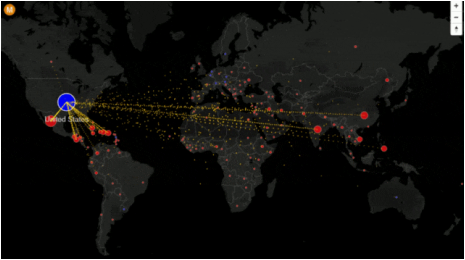
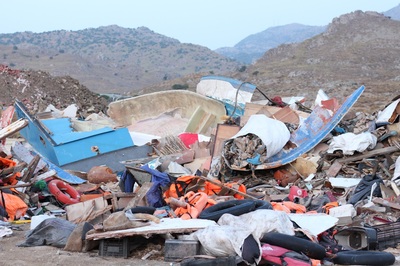
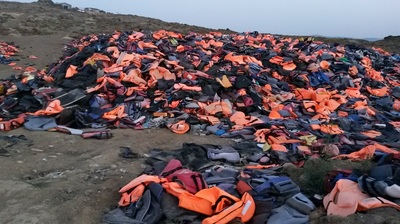
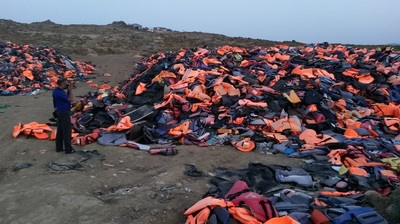
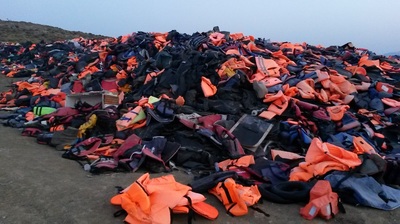
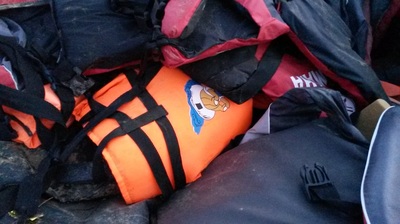
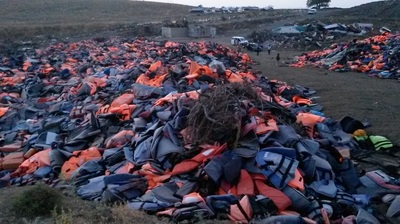
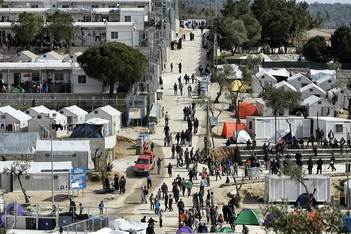
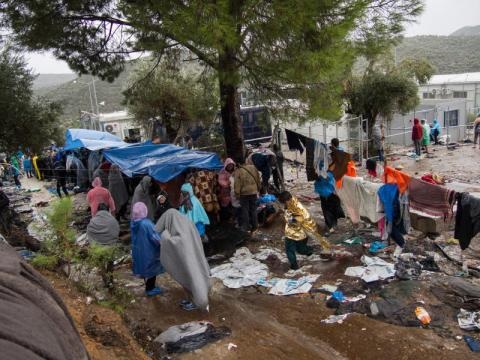

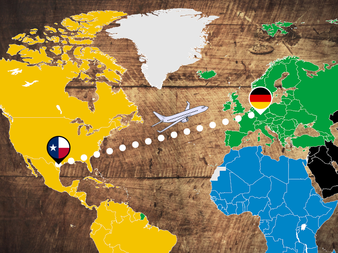
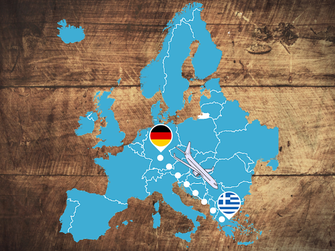
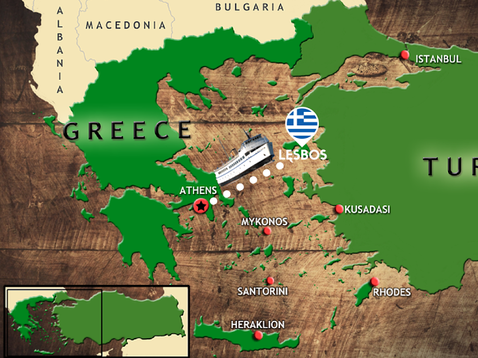
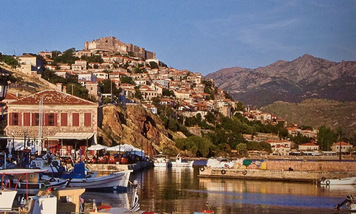
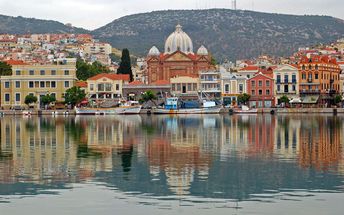
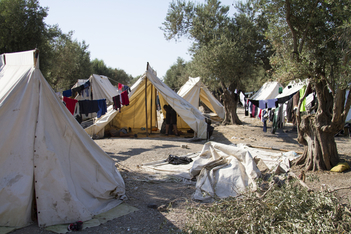
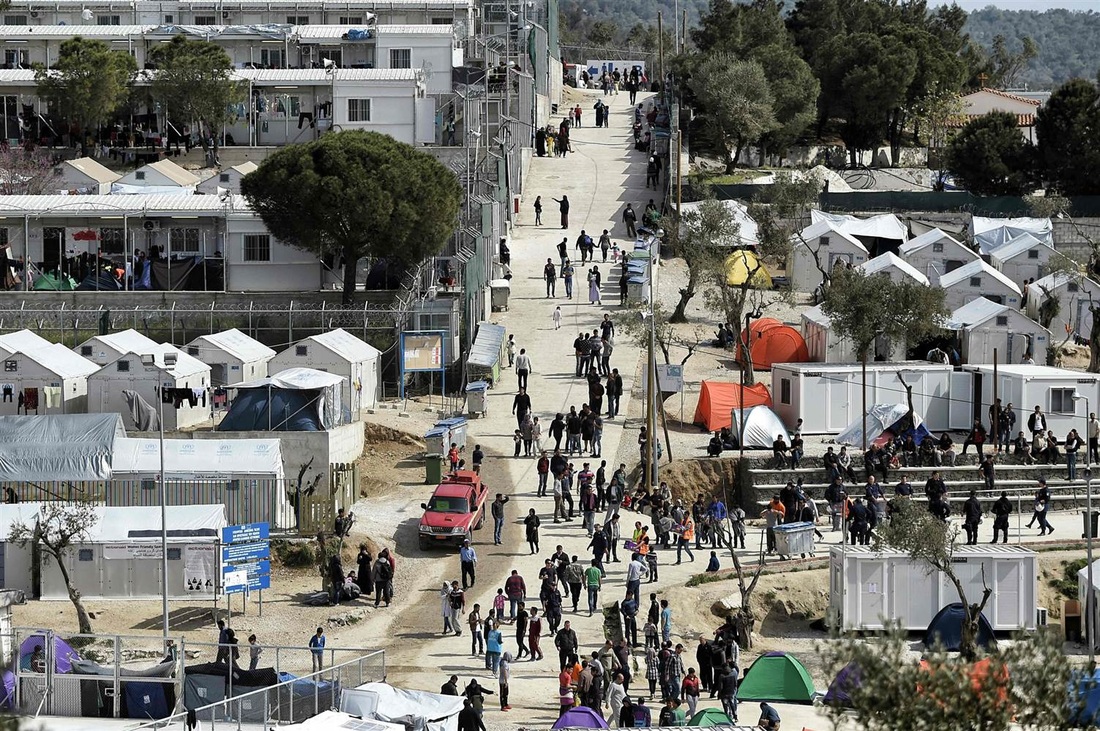
 RSS Feed
RSS Feed
